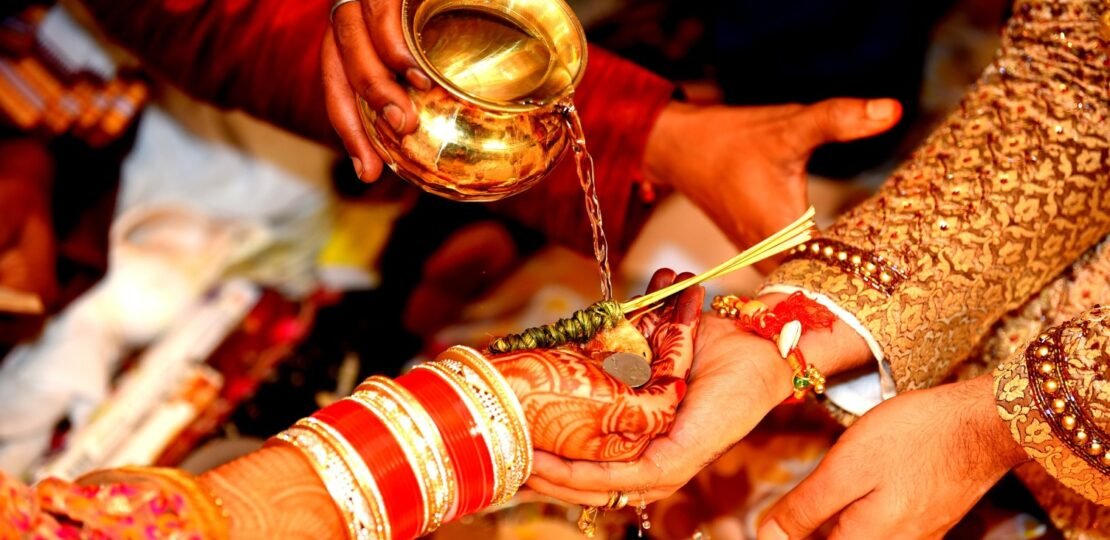
Matrimony holds a sacred place among the 16 samskars of Hindus, signifying a profound connection. The woman is revered as ardhangini, the better half who completes a man in every aspect. Strengthening this sacred union is the hindu marriage registration Act of 1955, an integral addition to the Sastrik laws governing Hindu marriages.
Hindu Marriage Act: Nurturing Sacred Bonds
The Hindu Marriage Act delineates the rights and responsibilities of spouses, presenting a remarkable embodiment of Sastrik laws governing Hindu unions. An amendment to these laws, the Act introduces the concepts of separation and divorce, providing a comprehensive legal framework for Hindu marriages.
Applicability Across a Diverse Nation
In a sovereign nation like India, where diverse religions coexist, the hindu marriage registration Act plays a pivotal role. Hinduism, being the predominant faith, encompasses a rich culture where marriage is regarded as the purest and strongest bond. Applicable to those of Hindu origin, including Lingayats, followers of Arya Samaj, Prarthna, or Brahmo, the Act also extends its reach to Jains, Buddhists, and Sikhs. Excluding Muslims, Christians, Persians, or Jews, the Act is applicable to any person belonging to the Hindu religion, domiciled in territories governed by Hindu law.
Nature of Hindu Marriage: A Sacred Blend
A Hindu marriage, rooted in tradition, is not merely a sacrament but also a contract, representing a unique blend of these two facets. Governed by specific conditions, a valid Hindu marriage necessitates adherence to these key aspects:
Single Marriage: Hindu law strictly prohibits more than one marriage, declaring it null and void with a punishment of seven years. The second marriage can be annulled upon the request of the spouse.
Mental Capacity: Parties entering into marriage must be of sound mind, free from mental disorders or insanity.
Age Requirement: The bride should be at least 18 years old, and the groom should be a minimum of 21 years old. Failure to meet this condition renders the marriage valid but punishable under section 18, with imprisonment, a fine, or both.
Prohibited Degrees: Marriages within prohibited degrees are void unless custom permits otherwise.
Ceremonies: Blending Tradition and Custom
Performing a Hindu marriage is a sacred act, and there are two valid methods:
Shastric Ceremonies: Involving rituals like kanyadan, paani graham, vivah human, and saptpadai.
Customary Formalities: Defined by various accepted customs, such as Chadarandaazi or Anandkaraj Act under the Anandkaraj Act 1909.
Legal Consequences of a Valid Marriage
Upon solemnizing a marriage according to Hindu customary laws, partners acquire the status of husband and wife. This grants them inheritance rights, immigration rights, and more. The legitimacy of children born during the wedlock is recognized, and mutual rights and obligations bind the married couple together.
Registration: Upholding Legal Formalities
While the Hindu Marriage Act does not specify marriage registration, its importance was underscored in the case of Ashwani v. Seema. The Supreme Court emphasized the necessity of registering marriages irrespective of religion. The registration is done under the Hindu Marriage Act, and the certificate can be obtained at the local registrar office.
Our Team: Guiding Through Sacred Unions
Our dedicated team provides comprehensive assistance in registering marriages under Hindu customary laws. We acknowledge the sanctity of this alliance and strive to facilitate marriage registrations in compliance with the Hindu Marriage Registration Act. As R.N. Sharma eloquently puts it, “marriage is a religious sacrament in which men and women are bound in a permanent relationship for physical, social, and spiritual purposes of dharma and procreation and sexual pleasures.”
RELATED POSTS
View all


